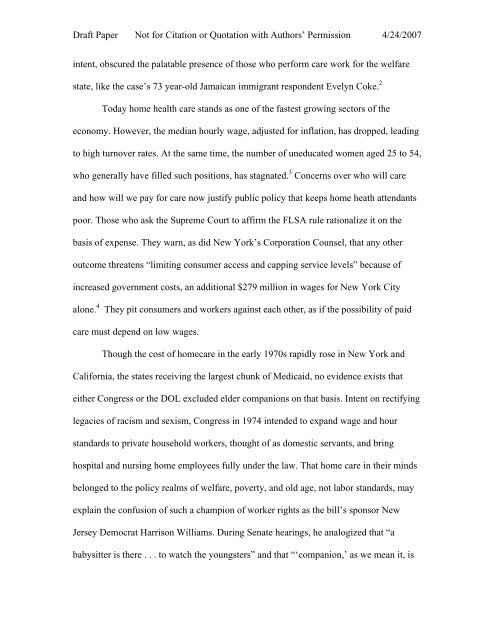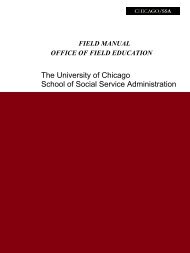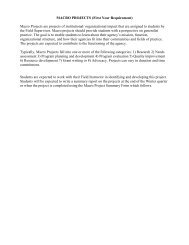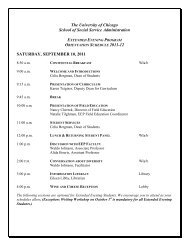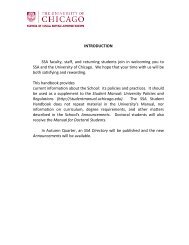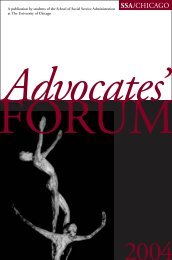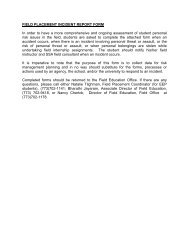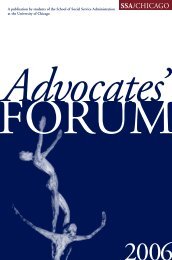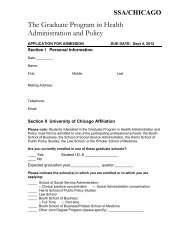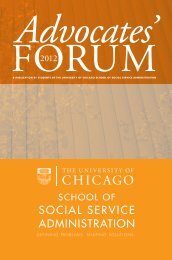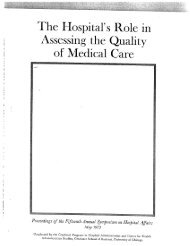Organizing Home Care: - School of Social Service Administration
Organizing Home Care: - School of Social Service Administration
Organizing Home Care: - School of Social Service Administration
You also want an ePaper? Increase the reach of your titles
YUMPU automatically turns print PDFs into web optimized ePapers that Google loves.
Draft Paper Not for Citation or Quotation with Authors’ Permission 4/24/2007<br />
intent, obscured the palatable presence <strong>of</strong> those who perform care work for the welfare<br />
state, like the case’s 73 year-old Jamaican immigrant respondent Evelyn Coke. 2<br />
Today home health care stands as one <strong>of</strong> the fastest growing sectors <strong>of</strong> the<br />
economy. However, the median hourly wage, adjusted for inflation, has dropped, leading<br />
to high turnover rates. At the same time, the number <strong>of</strong> uneducated women aged 25 to 54,<br />
who generally have filled such positions, has stagnated. 3 Concerns over who will care<br />
and how will we pay for care now justify public policy that keeps home heath attendants<br />
poor. Those who ask the Supreme Court to affirm the FLSA rule rationalize it on the<br />
basis <strong>of</strong> expense. They warn, as did New York’s Corporation Counsel, that any other<br />
outcome threatens “limiting consumer access and capping service levels” because <strong>of</strong><br />
increased government costs, an additional $279 million in wages for New York City<br />
alone. 4<br />
They pit consumers and workers against each other, as if the possibility <strong>of</strong> paid<br />
care must depend on low wages.<br />
Though the cost <strong>of</strong> homecare in the early 1970s rapidly rose in New York and<br />
California, the states receiving the largest chunk <strong>of</strong> Medicaid, no evidence exists that<br />
either Congress or the DOL excluded elder companions on that basis. Intent on rectifying<br />
legacies <strong>of</strong> racism and sexism, Congress in 1974 intended to expand wage and hour<br />
standards to private household workers, thought <strong>of</strong> as domestic servants, and bring<br />
hospital and nursing home employees fully under the law. That home care in their minds<br />
belonged to the policy realms <strong>of</strong> welfare, poverty, and old age, not labor standards, may<br />
explain the confusion <strong>of</strong> such a champion <strong>of</strong> worker rights as the bill’s sponsor New<br />
Jersey Democrat Harrison Williams. During Senate hearings, he analogized that “a<br />
babysitter is there . . . to watch the youngsters” and that “‘companion,’ as we mean it, is


